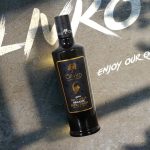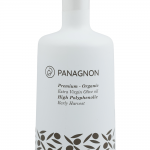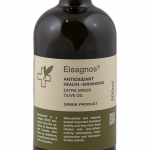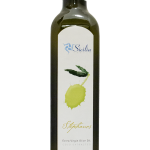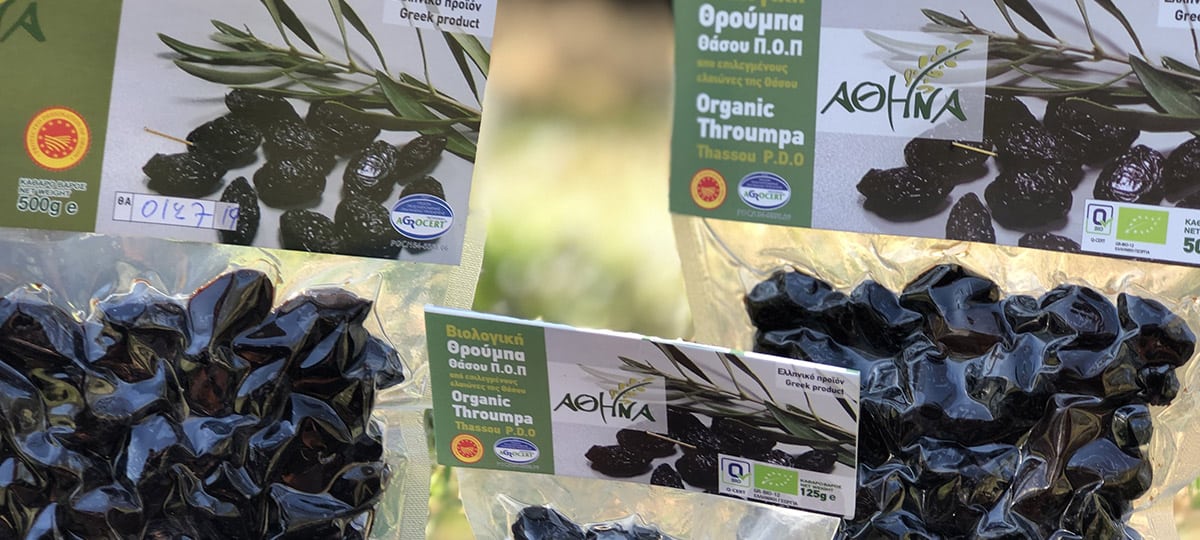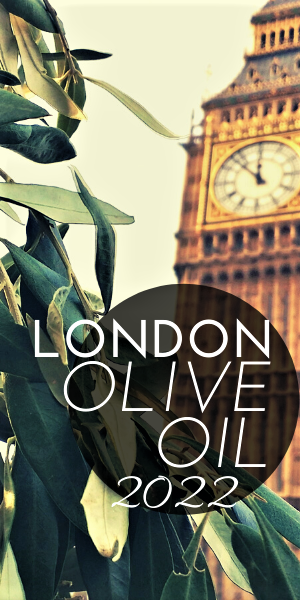Thasos is the most northern island of Aegean Sea, with a unique microclimate and ecosystem. Most of the island is covered by mountain forests, where olive grows are growing next to the pine trees. Supposedly first olive trees were planted by Phoenicians 2500 years ago. It is also believed that there are still olive trees that are over 700 year old.
The historically “wild” growing the olive, due to the frequent pirates’ attacks and the replacement of the constantly ravaged famous vineyards of the island with more profitable spices, allows for free growing trees along the perimeter of island. Now we can see the olives grows from the top of the mountain to the seashore. This traditional unique variety has the same name as the island. Also, the olive products are protected by certification of PDO and PGI.
The Throumba Thasos is this characteristic olive, which is produced exclusively on the island. The olives are harvested at the stage of full ripening when because of the sun the olive lose some of its moisture and shrivels, while losing some of its bitterness as well. Furthermore, natural fermentation takes place in sea coarse salt. As a result, the olive does not lose its i nutrients, unlike other technologies that involve soaking in liquids. This technology, as well as the variety and eco-friendly conditions allow maintaining high levels of oleuropein in the finished product relative the other kind of the table olives on the market. Oleuropein is an antioxidant with anti-inflammatory properties.
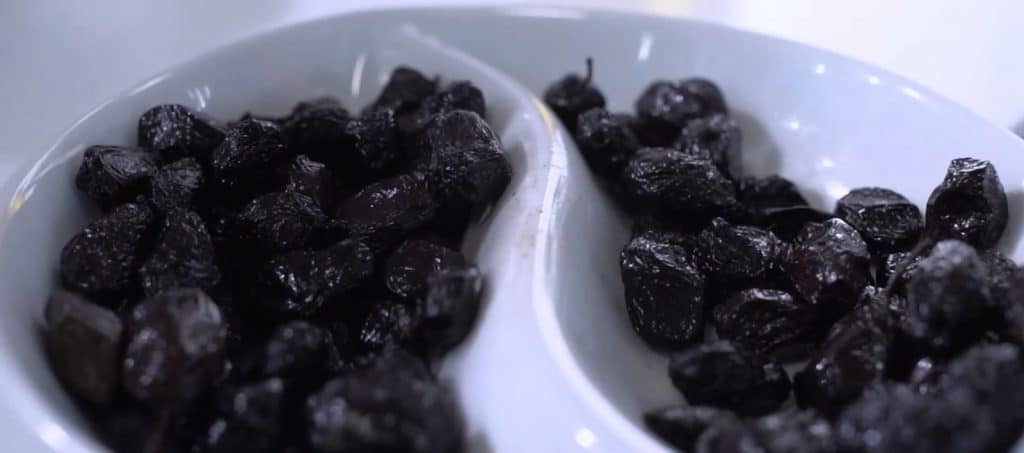
The study was carried out over several years and recorded in American scientist journal of food chemistry (J. AGRIC.FOOD CHEM.2010,58,46-50), we’re out of nine types of olives only in Throumba Thasos was found oleuropein in a quantity of approximately 1.2 mg per olive. In other popular industrial olive, products, it was completely absent or was no more than 0,06 mg per fruit. Therefore, by having about 20 olives in diet daily, a person receives I recommend for daily consumption, as a preventive measure. So, it is this olive that has received the status of Super Food.
The role of the Throumba Thasos olives in anti-aging nutrition should be also noted.
Throumba olives are rich in nutrition. They contain significant amounts of vitamin A, carotenoids and small amounts of vitamins B1, B6 and B12. Regarding trace minerals, Throumba olives contain potassium, calcium, phosphorus, iron and magnesium. As the olives have a relatively high content of carotenoids and mainly beta- carotene (provitamin A) they provide adequate antioxidant protection in the body. It also has a beneficial effect on the quality of vision and skin condition.

Throumba olives a meaty and have a strong olive taste. It has no pronounced bitterness and rather «sweetness» acquired in the process of natural fermentation, nevertheless, this ripe fruity should remind us that this is a bitter oily nourishing fruit, which was one of the basic of nutrition due to its ability to saturate well and the possibility of long-term storage. Throumba olives can be stored in the low temperature for a year and will retain their flavors.
Bio Olives «Athina» – Tsariktsopoulos Nikolaos is a family business which is located on the island of Thasos. The company is producer of traditional Throumba olives PDO, extra virgin olive oil Thasos PGI. The “Athina” is involved in promotion (popularization) of this product which due to its uniqueness and nutritional value is becoming very popular.
The philosophy of eating any natural product is a symbol of the unity of human with the nature. And harmony of this unit is true health today.
